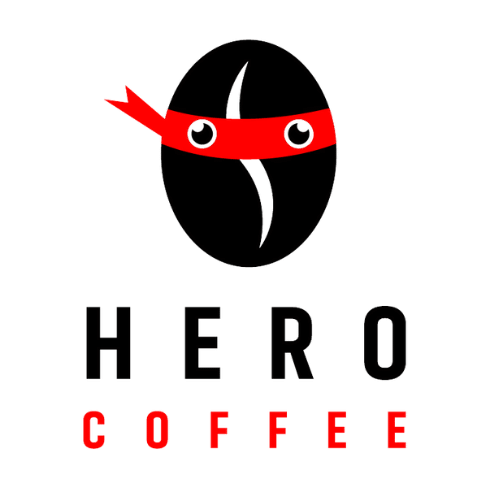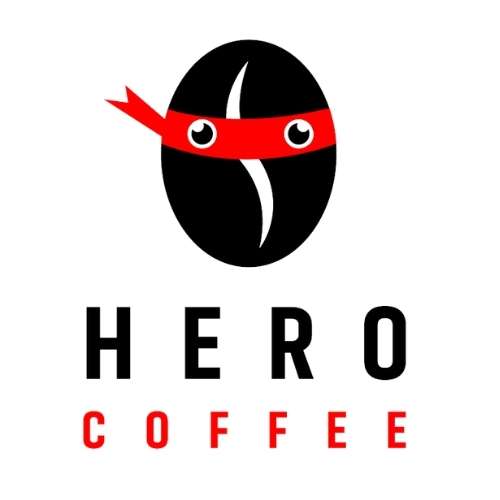If you’re scheduled for an upper endoscopy, it’s essential to follow your doctor’s instructions carefully. One of the most crucial steps in preparing for this procedure is adhering to a clear liquid diet beforehand.
In this blog post, we’ll dive into what exactly a clear liquid diet entails and why it’s necessary before an upper endoscopy. In this blog post, we’ll review which liquids are acceptable to consume and which ones should be avoided while adhering to a clear liquid diet prior to an upper endoscopy. Additionally, we’ll provide some tips on how to make the process more manageable and less daunting.
By the end of this post, you will have a comprehensive understanding of what a clear liquid diet involves when preparing for an upper endoscopy. Armed with this info, you can confront your imminent process with assurance and serenity.

Table of Contents:
- What is Endoscopy?
- Can You Drink Coffee After an Endoscopy?
- Preparing for an Endoscopy
- What Happens During an Endoscopy?
- Dietary Restrictions After Your Procedure
- When Can You Drink Coffee After an Endoscopy?
- FAQs in Relation to Can I Have Coffee After Endoscopy
- Conclusion
What is Endoscopy?

Endoscopy is a medical procedure that uses an endoscope, a flexible tube with a camera and light on its tip, to examine the inside of the body. It is commonly used to diagnose and treat various digestive disorders, including gastroesophageal reflux disease (GERD) and conditions related to bowel movement issues such as inflammatory bowel disease, polyps, or tumors. During an endoscopy, the doctor can take tissue samples or perform minor surgeries as needed.
However, endoscopy is not typically used as a primary method of evaluating bowel movements or detecting changes in stool patterns, and other diagnostic tests may be more appropriate for these purposes. Before an endoscopy, patients are usually asked not to eat or drink anything for several hours to ensure that the stomach is empty and the procedure can be performed safely. Endoscopy is generally considered a safe and effective way to diagnose and treat digestive disorders.
Can You Drink Coffee After an Endoscopy?

A medical exam of the upper digestive system to spot gastrointestinal issues is known as an endoscopy. After an endoscopy, patients must follow specific instructions for recovery, including dietary restrictions. One common question patients have is whether they can drink coffee after an endoscopy.
Consequently, it is inadvisable to ingest coffee or other caffeinated drinks shortly after an endoscopy as this could result in undesirable side effects such as nausea, vomiting and abdominal discomfort. Therefore, it’s best to wait until your doctor gives you the all-clear before consuming any caffeinated beverages like coffee or tea.
It is critical to ascertain the response to this query prior to having an endoscopy. Therefore, it is best to consult with your doctor for advice on when and how much coffee you can drink after an endoscopy. Preparing for an Endoscopy involves eating a light dinner and avoiding red or orange liquids which may interfere with the procedure.
Preparing for an Endoscopy
Prior to an endoscopy, it is critical to heed the directions supplied by your medical practitioner or healthcare provider. Eating a light dinner the night before can help ensure that you are comfortable during the procedure. Avoiding red or orange liquids is also essential since these can interfere with imaging and visualization of organs in the body. Additionally, eating lighter meals prior to your appointment helps reduce any discomfort that could be caused by a full stomach during the procedure.
It is essential to bear in mind that even though it may appear insignificant, adhering to pre-procedural protocols can be vital for achieving precise outcomes from your endoscopy. A light meal will not only provide enough energy for you throughout the procedure but also prevent any uncomfortable bloating associated with having too much food in your stomach while lying down on an examination table. Likewise, avoiding red or orange liquids prevents interference with imaging technology which is key for obtaining clear images of internal organs and structures being examined during an endoscopy.
Overall, following preparation instructions carefully is essential for successful outcomes when undergoing an endoscopy procedure as well as providing accurate results from tests conducted during this type of medical exam. Knowing what steps to take beforehand will help put both you and your doctor at ease throughout this process so that everything runs smoothly and efficiently on appointment day.
Prior to an endoscopy, it is essential to heed your physician’s guidance and partake in a light meal. Having outlined the preparatory steps, let us now explore the actual endoscopy procedure.
What Happens During an Endoscopy?
Endoscopies are a type of procedure used to diagnose and treat various conditions in the digestive tract. It involves inserting an endoscope, which is a thin tube with a camera on the end, into your body to examine the internal organs or structures. Endoscopies are used to examine the upper GI tract, small intestine, and large intestine.
Your physician might suggest a range of endoscopy processes depending on what they are attempting to detect or treat. An EGD (esophagogastroduodenoscopy) is a test that evaluates the esophagus, stomach, and initial segment of the small intestine. A colonoscopy examines the entire large intestine while an enteroscopy allows for visualization of parts of or all of the small intestine.
Advise refraining from drinking anything after midnight unless you have your physician’s approval. Furthermore, it is important to adhere to a light diet in the 12 hours leading up to your appointment and stay away from red or orange liquids such as tomato juice and orange juice for 1-2 days prior in order for there not to be any residue that could obstruct viewing during your exam.
A medical test utilizing an endoscope is used to inspect the interior of a person’s body. It is important to follow any dietary restrictions after this type of procedure in order to ensure proper healing and recovery. Next, we will discuss what types of foods should be avoided as well as how much fluid you can consume afterwards.
Dietary Restrictions After Your Procedure
Post-endoscopy, adhering to dietary regulations is essential for a successful convalescence. The most important thing to remember is that irritating foods should be avoided and clear fluids should be consumed instead. This means no red or orange liquids, spicy foods, dairy products, carbonated beverages, alcohol, or caffeine for at least 24 hours after the procedure.
Avoiding certain foodstuffs may be beneficial for recuperation; items like fatty, fried, greasy, sugary, processed, salty and acidic edibles as well as highly flavoured foods can cause issues such as bloating, heartburn or vomiting. Instead of these unhealthy options opt for clear fluids like water and broth in order to rehydrate your body while avoiding further aggravation of the digestive tract lining.
Unsweetened juices such as apple juice can also be consumed but should be diluted with water if you experience abdominal pain or nausea afterwards. Additionally small frequent meals are recommended rather than large meals in order to reduce any discomfort caused by gas build-up from air swallowed during the procedure; some examples include bananas applesauce oatmeal white rice etcetera.
It is important to follow dietary restrictions after your procedure in order to ensure a successful recovery. Therefore, it’s essential to understand when you can drink coffee again and the guidelines that should be followed before doing so.
When Can You Drink Coffee After an Endoscopy?

After an endoscopy, it is advisable to wait at least 24 hours before drinking any caffeinated beverages such as coffee. Generally, it is suggested to wait for a day before consuming any caffeinated drinks such as coffee after the endoscopy. This is because caffeine can cause stomach irritation and increase the risk of bleeding in the area where the endoscope was inserted. It’s also important to avoid spicy foods and acidic drinks like orange juice for at least 48 hours after your procedure.
It is essential to hold off on imbibing coffee again until you have completely recovered from your endoscopy, so as to avoid any problems or negative reactions while healing. If you sense uneasiness or nausea when attempting to consume coffee, it might be wise to delay longer than advised by your doctor. You should always consult with them if you’re unsure about how long to wait before drinking coffee again after an endoscopy.
Excessive caffeine intake may lead to dehydration, which can impede recuperation time and worsen post-endoscopy symptoms. Therefore, it’s important not only to wait until advised by your doctor but also limit yourself once cleared for consumption – even if all signs point towards being able go back full-steam ahead on that cup o’ joe.
To ensure optimal health post-endoscopy, aim for no more than two cups of brewed (not instant) per day while avoiding energy drinks altogether due their high levels of sugar and artificial ingredients – both known irritants that could interfere with healing process post-procedure
FAQs in Relation to Can I Have Coffee After Endoscopy
Why can’t I drink coffee after endoscopy?
Caffeine from coffee should be avoided after an endoscopy due to its potential interference with sedatives used during the procedure. Additionally, drinking hot beverages shortly after an endoscopy could increase discomfort or cause irritation due to contact with sensitive tissues in your digestive tract. For these reasons, it is best to wait until all sedatives have worn off and you are feeling back to normal before consuming any caffeinated drinks such as coffee.
What should you avoid after an endoscopy?
It’ll be a wise decision if you avoid liquid beverages like coffee, sports drinks, iced tea etc. for the first 24 hours after the endoscopic procedures. Because these can cause dehydration and to some extent, it can make you experience abdominal pain. Also, patients should avoid eating solid foods at least for a week and instead drink clear liquids only. After a week, a patient can resume his normal diet again. Don’t drink alcohol as it is unhealthy for you. Rather, eat easily digestible foods every 24 hours to 48 hours.
What can I drink after an endoscopy?
After an endoscopy, it is recommended to abstain from caffeine and alcohol for at least 24 hours and instead consume clear liquids such as water, broth-based soups or juices without pulp. Instead, try drinking clear liquids such as water, broth-based soups or juices without pulp. If you’re feeling up to it, plain tea (without milk) can also be consumed in moderation. Additionally, carbonated beverages like ginger ale are a good option if they don’t cause discomfort due to the gas bubbles. Avoid dairy products until your stomach has settled down and always consult with your doctor before consuming any type of beverage following an endoscopy procedure.
Conclusion
In conclusion, it is possible to have coffee after an endoscopy. Therefore, it is recommended to wait at least 24 hours before consuming caffeinated beverages such as coffee or tea. It is important to stay hydrated and take care of oneself after the procedure in order to ensure a smooth recovery. As long as you follow your doctor’s instructions regarding drinking fluids after the procedure, “can i have coffee after endoscopy” should not pose any issues for most people.
Discover the answers to your coffee questions at Hero-Coffee.com and learn more about when it’s safe to have a cup of joe after an endoscopy. Make informed decisions with expert advice from our experienced baristas!

